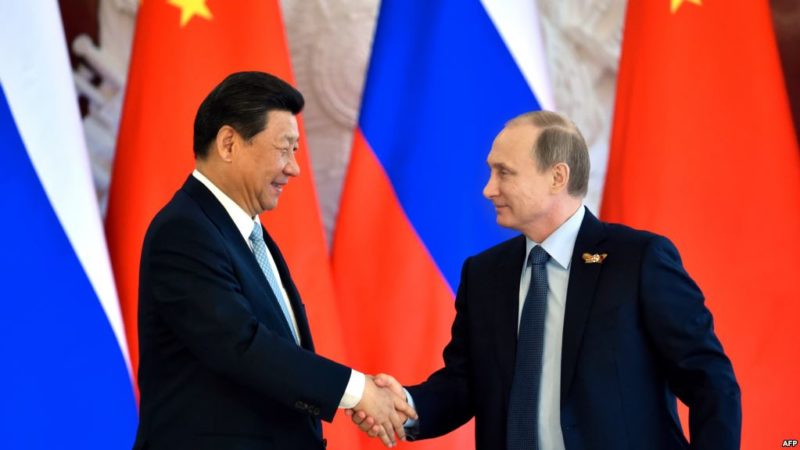Note: This Opinion was originally published in Russian language. It has been translated by Dispatch News Desk (DND) monitoring team.
Eurasia becomes the birthplace of an alliance of two influential neighbors who enjoy the advantages of geographical location and the presence of common interests to create a new axis of power – an alternative to the West and America with its East Asian allies.
Beijing and Moscow began to cooperate in some areas, since the two great powers were overboard the new world order that emerged after the Cold War. Russia supplied energy resources to the growing Chinese market and enlisted the political support of Beijing during the invasion of the West, and China was interested in Russian space and military technologies.
Over time, Russia under Vladimir Putin’s leadership regained political weight, and China became an important part of the world economy, and relations between Moscow and Beijing out of wedlock grew into a comprehensive strategy designed to reverse the balance of power in their favor.
Russia ranks first in the world in terms of area, and China – the third. The total area of the countries is more than 26 million square kilometers, and these are the two largest empires of Eurasia.
The peace between the two giant neighbors means that there is no need to spend resources on protecting the land borders, to strengthen the huge Eurasian fortress, to use geographic features to project power right up to the coast of the continent, as economically stable but small in size countries allies of the United States.
Russia has gained political power, and it influences Western elections and is gaining popularity among nationalist circles intending to overthrow the liberal Western order.
In the meantime, America has switched to solving its internal problems, and the tension in the relations between the Trump Administration and the European allies is growing.
China has begun to implement the initiative of “One Belt, One Road” (OBOR), and Russia actively supports it. The initiative is an all-encompassing plan to create a huge infrastructure (roads, railways, ports) to organize cross-border investment and lending, most of which will be provided by China.

The main task of OBOR is to shift the center of world trade and power to one side. But at the same time, the plan should also ensure that Eurasia and Africa share the benefits of growth in order to harness the colossal potential of their markets and economies.
China and Russia are planning to create their own pole of influence, but none of these countries have immunity to the two forces. Both states want to be on good terms with America.
Disclaimer:
The views and opinions expressed in this article/Opinion/Comment are those of the author and do not necessarily reflect the official policy or position of the Dispatch News Desk (DND). Assumptions made within the analysis are not reflective of the position of Dispatch News Desk.




